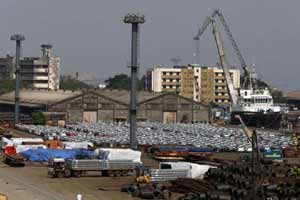As part of its strategy to tap the large but difficult China market, the government is planning to set up a company to acquire land in CLMV (Cambodia, Laos, Myanmar and Vietnam) countries and create an ecosystem for investment by Indian enterprises in these countries.
“The company will essentially be a project development Special Purpose Vehicle (SPV). The finance ministry is likely to set aside a grant of up to Rs 100 crore in Union Budget 2015-16,” a senior government official told The Indian Express.
“Suppose, for instance, Myanmar is inviting proposals to set up Special Economic Zones (SEZs). The SPV will invest money to buy land and develop it into an SEZ. It will then allocate plots to Indian producers and thereby recover costs. The idea is to facilitate manufacturing so that Indian firms create their own value chains,” the official said.
“The SPV will be in the nature of a PPP (public private partnership) initiative. A few large, private sector companies have evinced interest in contributing to the paid up capital of the SPV. EXIM Bank and IL&FS too have agreed to partner,” the official said.
Similarly, Vietnam offers great advantages for India, especially in catering to demand from China. Vietnam enjoys a free trade agreement with China. “It is part of the TPP (Trans-Pacific Partnership), a 21st century trade agreement, being negotiated by 12 countries including China, US, Australia, Japan and Vietnam. Vietnam has separate trade agreements with Australia and New Zealand too. If we create a manufacturing ecosystem for Indian companies in Vietnam, they can tap China and other TPP countries as well,” the official said.
Indian companies in agriculture, pharmaceutical and textiles sectors were keen to exploit the value chain advantage using Vietnam as a base, officials said. “They can export semi-finished products from their Indian units to their factories in Vietnam and complete the manufacturing. Vietnam opens the doors to the world,” they added.
India suffers a large trade deficit with China. In 2013-14, the trade deficit topped $40 billion and is projected to only increase in the coming years. Despite sustained engagement with various Chinese authorities to gain access to markets in sectors including textiles, agriculture and pharmaceuticals, India has not been able to make any significant headway.
Recently, the department of commerce took a delegation of big textiles manufacturers such as Welspun to Vietnam to explore investment opportunities. “Some of these countries, wary of China, are also keen to see investment from emerging markets like India. Like Vietnam, Myanmar is keen to get Indian companies. But Indian companies are keen on building scale and want to cater to the global market. So, the government will facilitate this,” an official said.


